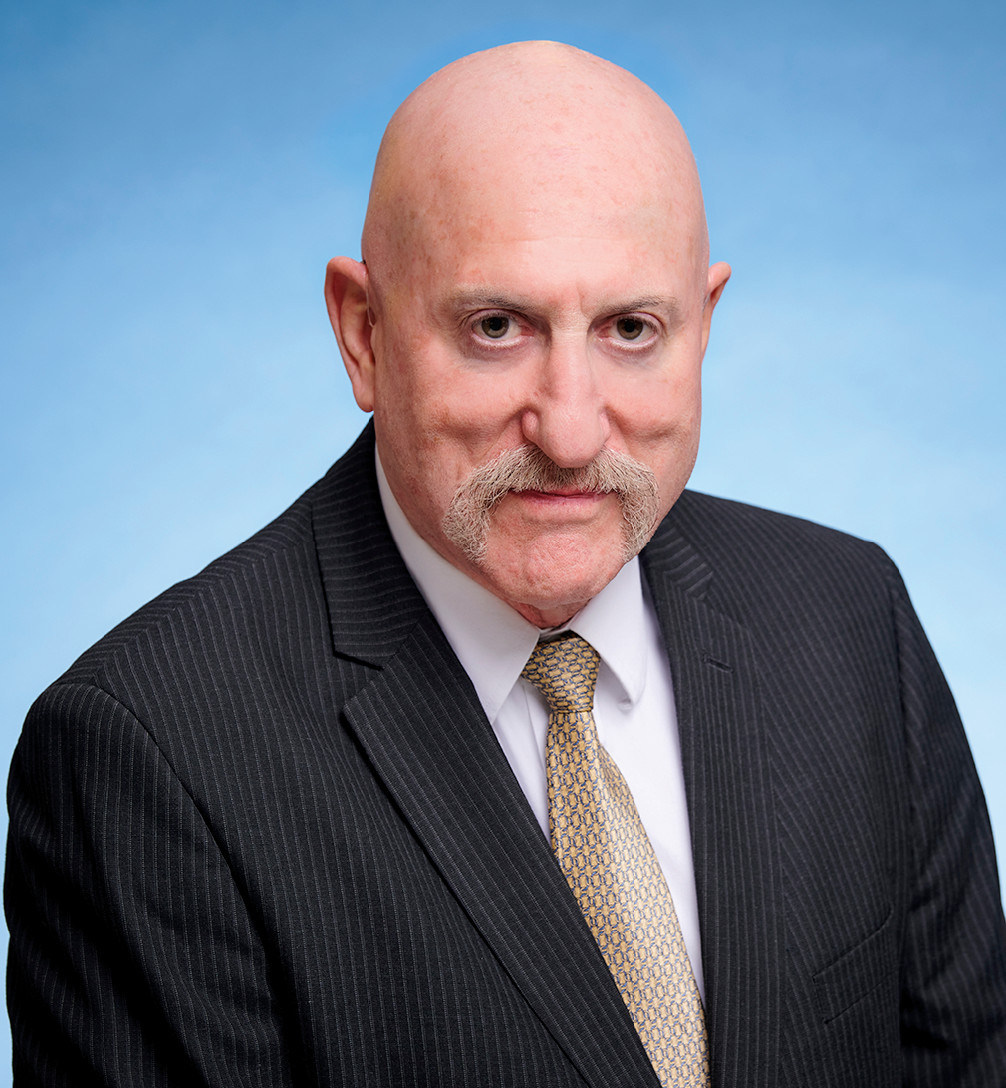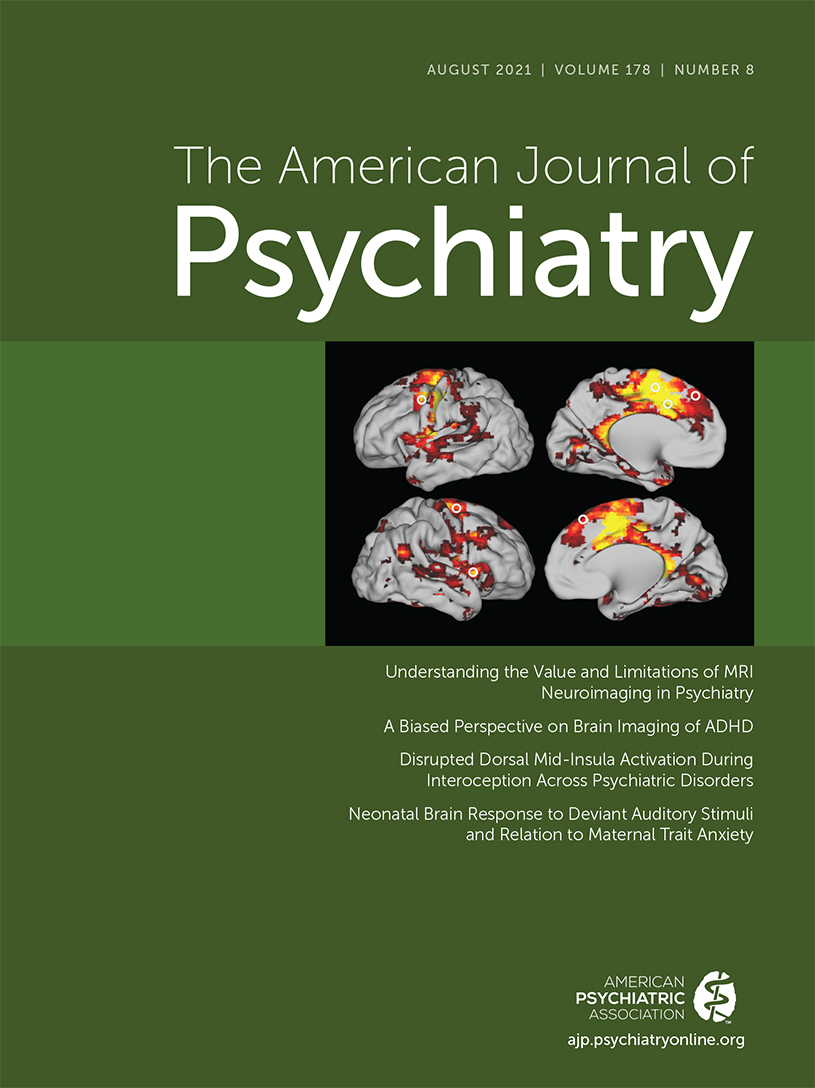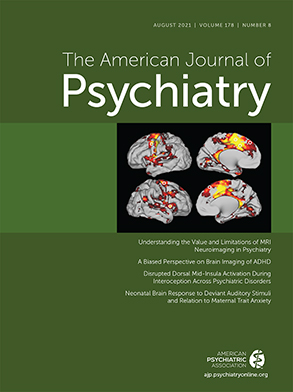Good morning, and thank you for joining together from wherever you are in the world in this virtual environment. I hope you will learn from all the many opportunities for education and, yes, networking, that it offers, even though we are far apart.
It is with great honor and gratitude that I address you as APA’s President for this occasion in these times. It has been a unique presidential year—a year that I would garner is unparalleled in the life of our association. It is of course impossible to know what other people in history were feeling when they encountered situations that felt unprecedented, and so the comparison may be for naught. But meeting virtually 2 years in a row is certainly new, as are so many other parts of this difficult, traumatic, testing year.
I would not have been as successful or gotten through it without the help and support of many people on a personal and professional level. My wife, my children, and my siblings were hugely supportive and allowed me the time to spend with APA, and kept me going during the pandemic. I want to thank Dr. Saul Levin and the APA administration, who did yeoman’s work throughout this strange and challenging year. I also owe a debt of gratitude to the people who served on the task forces I convened, and whose impact will be felt across psychiatry for years to come.
I’d like to speak to these unsettled times and the year that has gone by at APA. We found ourselves in a space where a virus impacted our ways of functioning in our association, our day-to-day jobs, and our personal lives. We found ourselves in a place where there were no face-to-face communications whatsoever. Some of our members began taking—for the first time—virtual appointments, and some of our members began having all virtual appointments. This is a dramatic change to the face of psychiatry as we knew it, and how we will operate when we emerge is to be determined.
At the same time, after tragedies inspired the voices of protestors nationwide, we faced an overdue reckoning with racism in American history. We did this as a country, and we did this as a field. At APA, we had challenging conversations without being in the same room, where you can read body language, shake hands, or hug. We relied more on the written word, and we saw the power of those words to help and harm.
Now, as we meet not face-to-face, but in this very different way, we can reflect on everything we shared over the past year. I honestly believe that in this dual reckoning, we have emerged stronger as a field.
I would like to first address psychiatry and its reaction to the pandemic. Those of you who stepped in on the front lines, many of you fellows and residents, deserve the nation’s gratitude for your service and bravery. You did incredible work in impossible circumstances. I will never forget this and remain inspired.
Many more of us, to stem the pandemic’s harm, shifted our way of doing business as psychiatrists within days. Many of us abandoned offices for laptops and Zoom rooms, seeing more patients than ever before as the tolls of physical isolation and undue levels of uncertainty and fear hurt so many.
But note: What will ultimately be the long-term impact of this shift to telehealth is more access to psychiatric care for people who need it.
Our continued work in Washington and our advocacy over the pandemic has been key to that expanded access. One of the moments that I know will stick with me for years to come is testifying virtually before Congress on many topics of importance to psychiatry. While the members of Congress popped in and out of Zoom windows over that long afternoon, having APA’s voice in that session, coupled with long-standing APA advocacy, helped us win a few extremely important battles. We were able to defeat legislation that would have redefined psychologists as physicians under Medicare and legislation that would broaden the scope of practice to let people without medical degrees prescribe psychiatric medications. We advocated for more lenient telehealth rules, which in this extremely challenging time allowed more patients stuck in their homes to access life-saving care.
Finally, after years of ongoing legislative work by APA and its district branches, we achieved a significant goal in December with a law that gave the federal government a bigger authority and role in enforcing parity for mental health services. I cannot overstate what a tremendous change this is, and what it will mean for patients. In every state, they will be able to formally complain to the Department of Labor when their insurance claims are denied or they face discrimination by insurance companies for mental health coverage. And the Department of Labor will be able to report out and hold these companies publicly accountable.
Another major accomplishment this year that will better the lives of our patients is the creation of the Committee on Climate Change. The Board of Trustees agreed that climate change’s impact on our mental health and our planet needed very much to be at the level of an APA committee. Elevating it shows our commitment as a field to not only helping those who suffer from the mental health impacts of climate change but to eradicating it as a global threat.
I’m very proud of APA’s work alongside the World Psychiatric Association during COVID. APA is a member of the World Psychiatric Association Advisory Committee on Response to Emergencies. As part of that committee, the APA Foundation sent personal protective equipment, PPE, to hospitals in several countries in Central America that badly needed it. The Foundation donated a total of 1,800 N-95 masks to five psychiatric hospitals in El Salvador, Guatemala, Honduras, Panama, and Nicaragua. Each hospital was sent 360 masks to help front-line health care workers caring for COVID-19 patients. Our efforts and partnership there were much appreciated, and I hope that we can continue to cooperate to help our colleagues around the world in times of need.
The power of collaboration was apparent in the work of the Presidential Task Force on the Assessment of Psychiatric Bed Needs in the United States. I convened this task force not long after the beginning of my presidency. I did that because we don’t really have a grasp on how much care is available in this country for people with severe mental illness and substance use disorders. The goal of this task force was to develop a model that would help states and localities determine the on-the-ground capacity to treat people with SMI and SUD.
What happened over the course of the year was that more than 40 task force members and consultants from inside and outside the field of psychiatry stepped up and volunteered to help. They divided into seven subgroups that took on the task, each examining different areas.
The task force is making substantial progress toward their final products, including a white paper that assesses psychiatric inpatient beds, as well as community services and alternatives that might mitigate the demand for adult and child/adolescent inpatient beds. In addition to the white paper, the modeling subgroup is developing two models to reflect the complexities of the adult and child/adolescent systems. If you want to learn more, I encourage you to visit their session tomorrow at 4:00 p.m.
Their work was extraordinary, and I commend Dr. Anita Everett for heading this large-scale effort.
Before I move from the topic of psychiatric beds, I personally hope we can work to repeal the IMD or Medicaid Institutions for Mental Disease exclusion rule. This discriminatory rule prohibits Medicaid payments to hospitals for treating adult patients with more than 16 beds. It is limiting our capacity to treat those with psychiatric disorders and causing harm to those who need it most.
This year also saw psychiatry and the nation confronted with the shameful truths at the very core of our history that we’ve carried into our present. After the deaths of George Floyd, Breonna Taylor, and Ahmaud Arbery, and too many others, psychiatry began a deep look inside, to surface for those who did not yet understand, or who were unwilling to acknowledge, how racism had infected the very core of our discipline.
It was apparent to me that we needed to deal with this on a variety of fronts. I convened in June an APA Presidential Task Force to Address Structural Racism Throughout Psychiatry. Over the course of 10 months, this extraordinary group of individuals set out to examine anti-Black racism as it manifested itself in our very core. The task force formed workgroups who studied our operations and presented substantial changes that we could put into effect to encourage equity and inclusion.
That wasn’t all the task force accomplished. It examined the scientific program of this meeting to ensure that sessions and speakers addressing diversity, inclusion, and equity were well represented. It engaged the membership in town halls and in surveys that helped direct its activities. And with an eye to the future, it brought in our resident and fellow members on many projects that will help ensure the pipeline to leadership is a diverse one. If you want to learn more about all of the task force’s progress, make sure you attend their session this afternoon at 4:00 p.m. for a Presidential Town Hall.
As a historian of psychiatry, I took it upon myself to examine and educate about our past as well. Through a series of nine columns in Psychiatric News, I tried to trace how unquestioned assumptions of white supremacy (supported by or masquerading in the guise of pseudo-scientific notions of Black inferiority) have permeated our history from its beginning. It hits us at our very roots. Benjamin Rush, long revered as the father of American psychiatry, owned a slave (despite being an abolitionist) and proposed a disease called “Negritude”—fundamentally declaring Black skin a disease.
Spurred by conversations among our members, the Board of Trustees worked this year to examine the way it operated and has changed, I think, for the more transparent and the better. Some of that work involved considering the task force’s recommendations for change and approving them for implementation. Some of that work was in the form of an antiracism training we recently held, which was profoundly impactful on many of us.
Perhaps the most public part of the work was the Board’s historic decision to issue APA’s Apology to Black, Indigenous and People of Color for its Support of Structural Racism in Psychiatry in January. I encourage you to read the entire document and its accompanying historical addendum. There are many important ideas within, and for those who weren’t aware, alarming historical facts, but in looking forward, we say:
“We commit to working together with members and patients in order to achieve the social equality, health equity, and fairness that all human beings deserve. We hope this apology will be a turning point as we strive to make the future of psychiatry more equitable for all.”
A turning point.
I believe the many members who spoke up and held us to account, the planning of the newly energized APA Department of Diversity and Health Equity, and the efforts of the task force over the past year have helped us get there.
I do truly thank everyone involved, especially Dr. Cheryl Wills, for her leadership as chair of the task force, along with all of its members. I want us to keep moving forward toward a just future for the APA because that will change our patients’ lives for the better. That means that all of us, whether we believe we feel the harms of racism directly or not, will all need to continue to pay attention and to advocate for changes when we see they are needed. Because in the long run, we are all impacted by racism, and the mental health of our nation will suffer until we have eradicated it and come toward that equitable future.
It is in this context that I would remind everyone that we need to respect ourselves and to be respectful of the challenges we’ve all faced this year.
It has forced us to confront that even as we are healers, we have to be conscious of the burdens we are carrying and the impacts of those burdens on our own mental health. It seemed nothing happened as expected and that every day a new test of our flexibility in our work or our lives was waiting. We lost colleagues and loved ones. I would like to specifically mention the recent loss of Joe Napoli, the Speaker of our assembly, after a long illness. Please pause for a moment to think of them.
As we faced tremendous unforeseen obstacles together, we sometimes spoke strongly or confronted one another with uncomfortable facts. But we grew together as a field. As psychiatrists and physicians, we know that when we are in crisis and when we face reckonings, surfacing the wounds can give us power to heal. I hope this is what we began to do this year and will continue to do in the next.
When I look back on my presidency of the American Psychiatric Association, I will be proud and thankful for all we managed to accomplish, as well as all we will manage to accomplish as we emerge from this pandemic and these unsettled times. Thank you.


